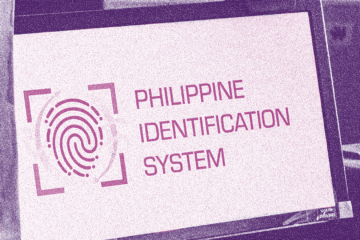FMA holds 3rd National Surveillance Workshop
Foundation for Media Alternatives, in partnership with the Commission on Human Rights and with the cooperation of the National Privacy Commission and the Department of Information and Communications Technology, conducted its third national workshop on surveillance on 18 November 2016 at the DICT AVR. Entitled TIKTIK 3.0: Rise of a Philippine Surveillance State?, the workshop brought together almost forty participants from civil society, government, the academe, and other sectors.

After an introduction to FMA and the organization’s work and advocacies, Matthew Rice of Privacy International provided information on the Global Surveillance Monitoring and Advocacy (GSMA) project. The project covers 13 countries and aims to enhance the privacy and free expression in those countries by providing civil society with knowledge, tools, and resources to investigate and respond to surveillance technologies and to build momentum for policy change to ensure strong human rights protections in national surveillance laws.
FMA’s Privacy Program then presented the updated State of Surveillance in the Philippines Report. The report is published by Privacy International as part of its State of Privacy reports here. The report included an overview of the Philippine legal and regulatory landscape and reported surveillance technologies in the country, which were the focal points in the two previous workshops.
The updates for the year 2016 were anchored on the dramatic shifts happening all around the world: new people in positions of power, evolving power relationships, and changing priorities have all drastically changed the global political landscape, particularly with regards to privacy and surveillance. The report mentioned recent revelations that in the United States, the rise of the surveillance state was largely influenced not just by the war on terror but also by the war on drugs. This then presents a cause of alarm, particularly considering the ongoing drug war in the Philippines. Jess Pacis of FMA’s Privacy Program then proceeded to discuss growing market for surveilliance/intelligence technologies in the country, best evidenced by the increase in resources for intelligence, as well as news of several known surveillance technology manufacturers opening shop in the country.
The three key issues that were tackled in the presentation all involved measures that are currently being proposed in Congress, namely: amendments to wiretapping, mandatory SIM card registration, and national ID system. As all three measures involve the collection of information, FMA warned against the dangers of entrusting so much information to government agencies, especially since the COMELEC leak of March 2016 demonstrated the lack of capacity of the Philippine government to adequately protect and secure large amounts of data.
The organization also stated that they will soon be releasing briefing papers on each of these individual issues.
Kathline Tolosa of Security Reform Initiative, Armando Paragat of Amnesty International, and Atty. Ivy Grace Villasoto of the National Privacy Commission presented their respective reactions to the report.
The afternoon sessions of the workshop zeroed in on three pressing issues involving surveillance in the country: the proposed amendments to the Anti-Wiretapping Law (presented by Atty. Rasiele Rellosa of the National Privacy Commission), implementation of the Anti-Child Pornography Act (presented by SPO2 Joseph Delos Santos of the Inter-Agency Council Against Child Pornography), and proposals to mandate SIM card registration (presented by Atty. Roy Ibay of the Philippine Chamber or Telecommunication Operators).
Several other issues surfaced during the open forum, such as the need to come up with laws and policies to counter misinformation in social media, the possible infringement on privacy of Facebook’s facial recognition program, the need to address the repercussions of the COMELEC leak in relation to technologies such as Google Street View, among others.
The Commission on Human Rights closed the event by highlighting the need to balance the right to privacy with national security and encouraging collaboration between the government and the private sector in protecting the rights of citizens. Atty. Jacqueline de Guia of the CHR’s Public Affairs and Communications Office also discussed the Necessary and Proportionate Principles, or the International Principles on the Application of Human Rights to Communications Surveillance, which should guide both the State and civil society in ensuring that surveillance laws and practices are consistent with fundamental human rights.
It is expected that the issues raised during the workshop will further be tackled at the National Privacy Conference, to be held in January 2017.
You may access and download the presentations below:
- Global Surveillance Monitoring and Advocacy – Privacy International
global-surveillance-monitoring-and-advocacy-pi
- State of Surveillance in the Philippines – Foundation for Media Alternatives
state-of-surveillance-in-the-philippines-fma
- Proposed Amendments to the Anti-Wiretapping Law – National Privacy Commission
anti-wiretapping-law-amendments-npc
- Implementation of the Anti-Child Pornography Law – Philippine National Police Anti-Cybercrime Group
anti-child-porn-law-pnp-acg
- Issues in Mandatory SIM Registration – Philippine Chamber of Telecommunication Operators
sim-registration-pcto
- Necessary and Proportionate Principles – Commission on Human Rights
necessary-and-proportionate-principles-chr



0 Comments